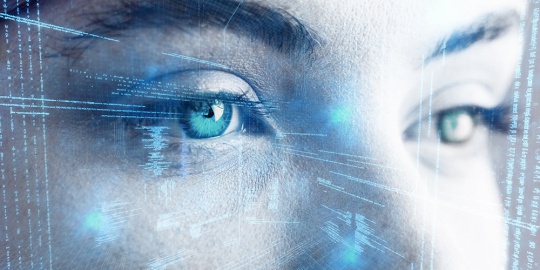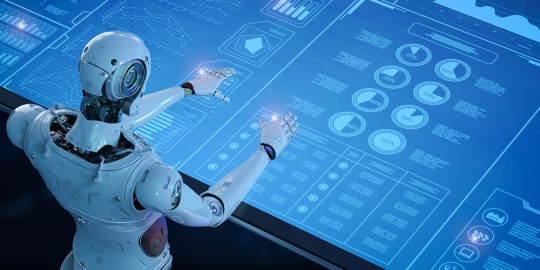In the last few years, robotic automation has gained a large popularity. RPA technology is entering almost all operations of a business enterprise. It has revolutionized many industries and its impact can be felt in multiple channels. The rise of several RPA vendors such as UiPath, Blue Prism and Automation Anywhere is unwaveringly contributing to this sudden growth in the industry. A report from Deloitte also acknowledged that about 53% of the organizations have started using RPA technology and the number is expected to rise to 72% by 2020.But with these progressive developments, many questions comes in mind:
What lies in the future of RPA technology? What are the expected developments in RPA field? What will RPA serve to different industries?
Here, in this article, we have tried to answer a few of these questions:
Today, RPA technology has become a buzzword. More and more companies are using RPA for fast and error-free business operations. But RPA is still in its nascent stage. Currently, it is used to automate repetitive and rule-based tasks. As a result, RPA is heavily integrated in Business Processing Operations (BPOs), where rule-based tasks are usually performed.
But, RPA still has lot of potential which is yet to be realized. By integrating it with some other advanced technologies such as Artificial Intelligence (AIs) and Machine Learning (ML), the RPA bots can be used to automate tasks that require superior skills. In future, we can anticipate robots working or supporting us in the daily operations.
RPA technology also has lots of potential when integrated with big data and advanced analytics. Today, the corporate world has become digital and information has become a new asset. Organizations need information to know about the current trends and get an insight for future. In this new era, information is the new tool.
RPA bots has the potential to capture and process this data and generate advanced analytics reports at rocket-high speed. With the help of big data, RPA can expose business patterns that were not visible previously. These tools can identify the inefficiencies and bottlenecks in operations which was not possible before.
Similarly, RPA bots can be used in other advanced technologies such as chat-bots or as a part of customer relationship industry. With higher cognitive skills, they will be better able to communicate and respond with customers. With chat-bots, business organizations can be assured that their brand images remains consistent throughout all external communications.
This advanced technology will be very beneficial in several industries such as banking, accounting, insurance and heavy machinery that requires high precision and accuracy in business operations. It will be robust, free from manual error and will not have malicious intentions. The companies will be able to save millions, which otherwise today are wasted due to human mistakes (intentional or non-intentional). On the other hand, bots will increase the chances of virus attacks or software tweaking. It can result in loss of billions, as till the issue will be identified, a huge loss would have already happen. Therefore, it is wise to prevent bots in handling sensitive data till advanced security measures are developed (Medium, 2017).
As of now, the business enterprises have started envisioning how human judgment can be replaced by bots. In this new shift, it is expected that the enterprises will start looking to utilize natural language processing (NLP) and machine learning (ML) technologies in RPA. The companies will start looking to integrate IoT with RPA technology. The rapid advancement in technology is due to the high potential already foreseen in RPA. RPA bots not only have the capability to reduce the company expenditure but also result in higher productivity as the human workforce will become free to perform high-level tasks. With bots, the business corporate can attain several direct and indirect benefits that help in boosting overall productivity of the organization.
In the future, we can also expect bots to work on multiple systems. It will result in very high efficacy as well as high economy of scale. There are chances that the companies will start using bots for external, customer-oriented processes in addition to the internal processes. We can see more advanced software in the near future, where bots can independently handle all customer-oriented activities. RPA will move beyond rule-based technology to AI and other advanced technologies.
With this realization, many intellectuals are concerned that bots will replace human jobs. But even though we expect integration of RPA technology with other advanced technologies, RPA will be unintelligent in its core. We will always need human as part of a workforce.
Conversely, RPA technology will support humans in all future endeavors. Since its advent, the RPA technology has gone a long way in cognitive direction. Although now OCR (optical character recognition) and NLP (natural language processing) are being integrated with RPA for better coverage of business processes, RPA technology still has lot of potential. The future is not far away when the robotic workforce will work together with the man.
In the future, we anticipate traditional rule-based automation will reach new heights with decision-making capabilities and cognitive technologies. There is also very much hype about RPA 2.0, in which there will be more involvement of AI and digital transformation. The future workplace will be distinct by hybrid wireless networks, interactive digital environments, cognitive computing models and intelligent bots.

